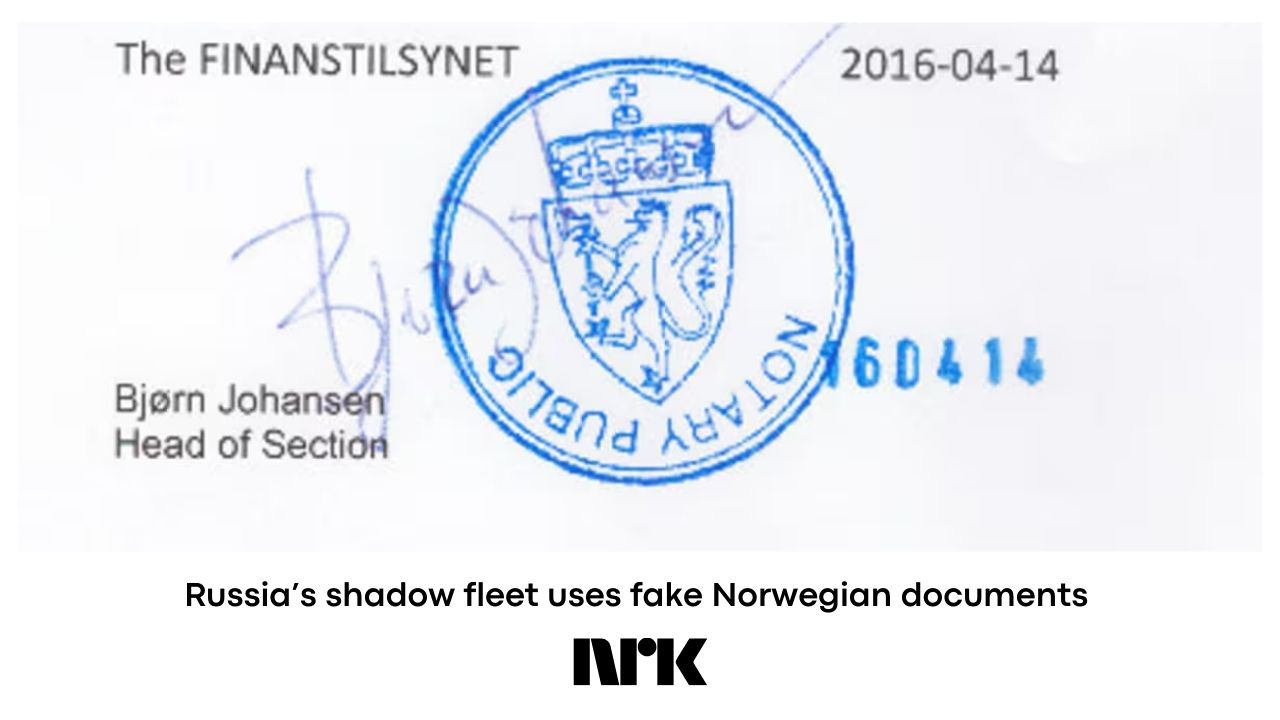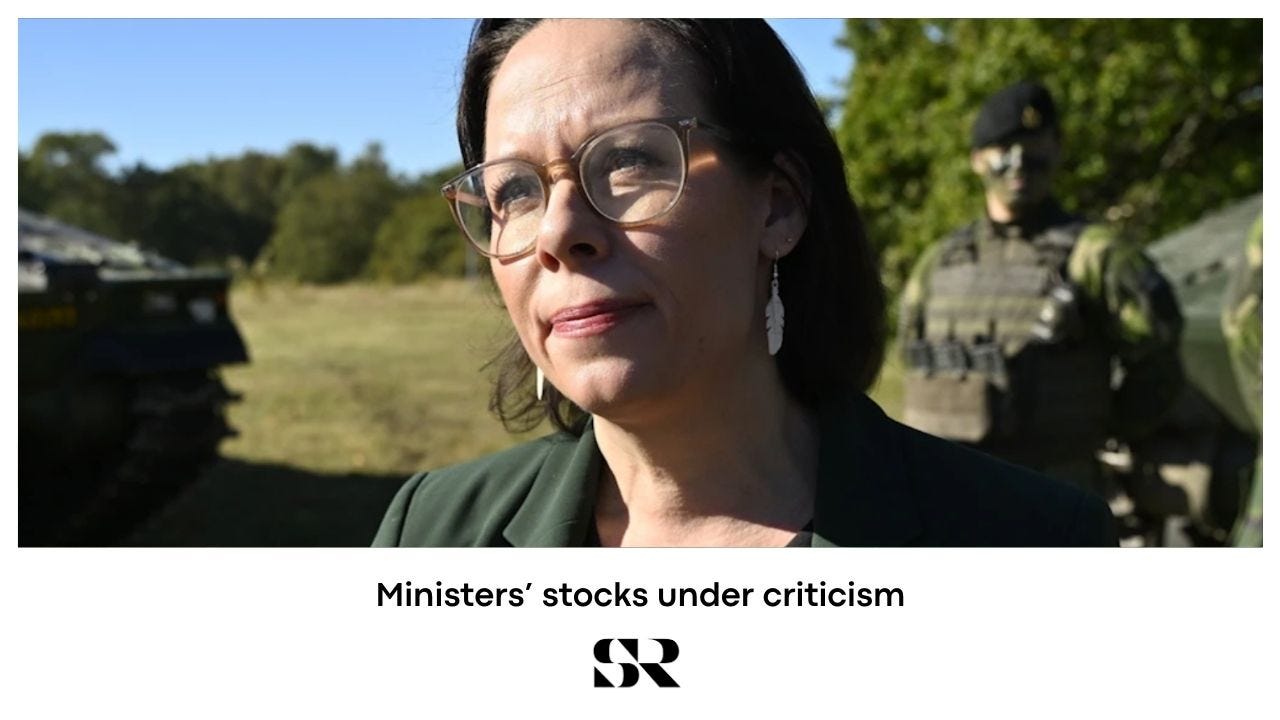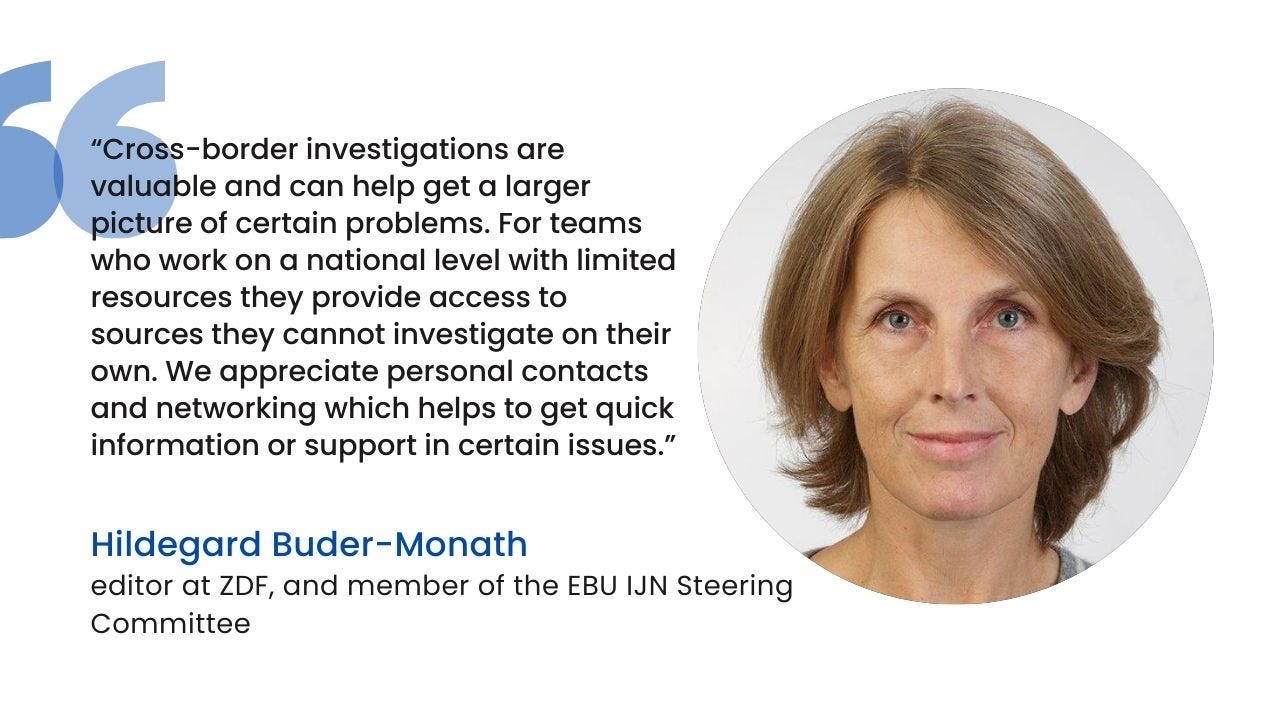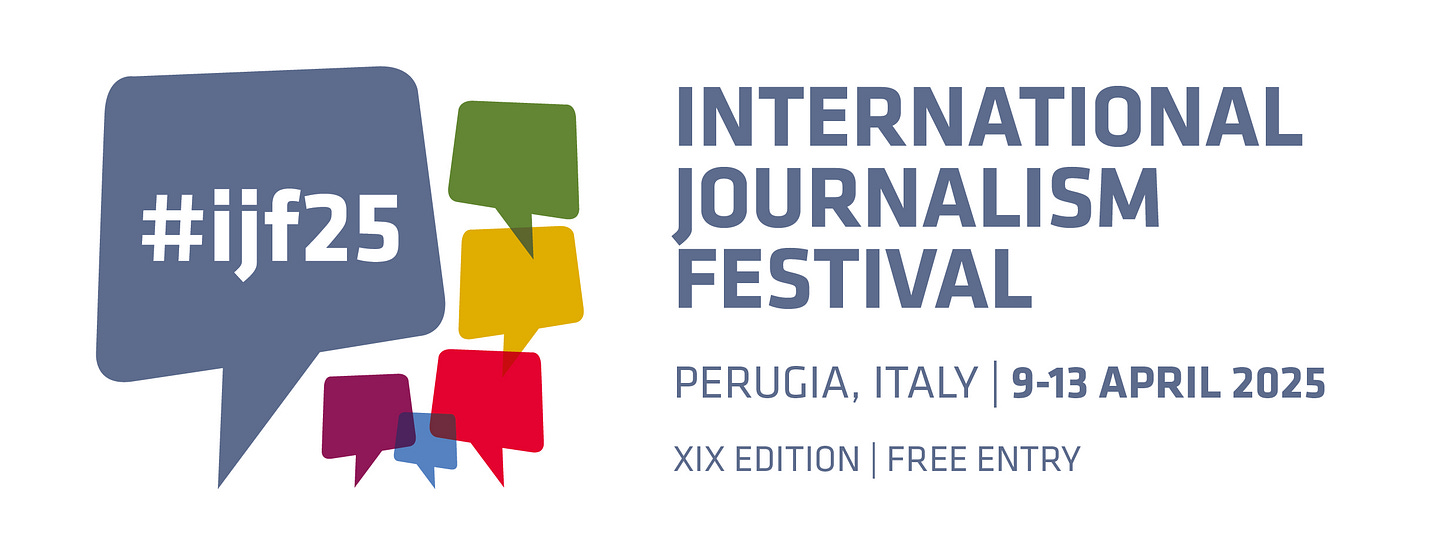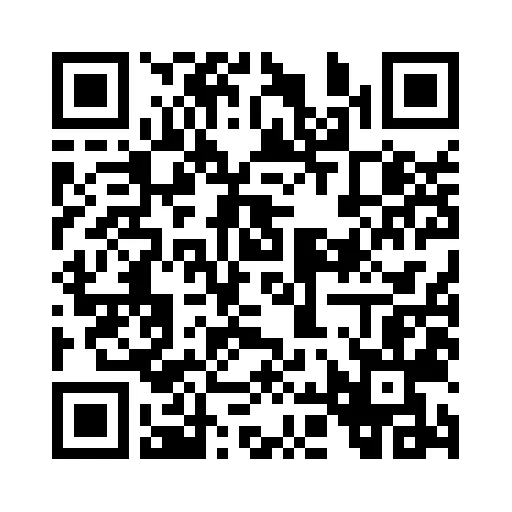Tracking Russia's hybrid threats, using OSINT to map Belgian weapons and Swedish ministers facing criticism
Issue 4 of the EBU Investigative Journalism Network newsletter
Welcome to the fourth edition of the EBU Investigative Journalism Network’s newsletter! We’re bringing you investigative stories from our partners, updates on upcoming events, and an inside look at Germany’s ZDF investigative team.
Read on to learn about a Norwegian investigation into fraudulent insurance papers, an RTBF report on where weapons produced in Belgium end up, the EBU Investigative Journalism Network’s latest work on hybrid threats from Russia, and an international event.
If you like this newsletter, don’t hesitate to forward it to your colleagues.
An investigation by Norway’s NRK and Denmark’s Danwatch has uncovered how a dozen NATO countries have been presented with fraudulent documents from a fake insurance company controlled by a Russian national. Ships must provide valid insurance papers to enter ports and navigate restricted areas, including the Baltic Sea, where NATO has imposed measures to regulate the transport of Russian oil. The report includes maritime data on the vessels with fake insurance that are suspected to be part of Russia’s shadow fleet. It also features visualizations of their routes near Europe, despite NATO’s restrictions. In response, Norwegian police have launched an investigation, and four individuals have been charged.
RTBF investigated where weapons produced in Wallonia, the French-speaking region of southern Belgium, end up - and whether the Walloon authorities’ claims of strict controls hold up. Faced with refusals for interviews from officials, journalists used OSINT techniques to track the weapons. Their findings traced Belgian-made parts to Afghanistan, Israel, and Saudi Arabia, contradicting official bans and pledges.
Sveriges Radio’s news service, Ekot, revealed that both the minister of foreign affairs and the current minister of labor purchased shares in companies directly impacted by government decisions. While this is legal, their actions prompted criticism. Official data shows that nine ministers hold shares, with several engaging in stock trading during their time in office. The investigation has sparked renewed calls for stricter regulations for Swedish ministers, to avoid suspicion of benefiting from the decisions of the government.
An investigation by LRT, VRT, YLE, ERR, LTV, SVT, KRO-NCRV Pointer, CT, RTVE, and the EBU has documented over 60 cases of Russian hybrid warfare in Europe, including arson, cyberattacks, vandalism, sabotage, influence campaigns, and agent recruitment. Using this database as a foundation, the reporting team interviewed 20 government, intelligence, and military officials, as well as experts from 10 countries, to create a visually compelling report of Russia’s operations in Europe.
Our partners’ newsrooms: The ZDF investigative journalism team
Within the German broadcaster ZDF, investigations are published in various formats, including the weekly Frontal magazine and Die Spur (The Lead), a 30-minute weekly documentary.
Die Spur is produced by the Politics, Current Affairs, and Documentaries department, based in Mainz. The team consists of 14 journalists, and they often work with freelancers and production companies. Their work was nominated for Deutscher Fernsehpreis (German TV Award) in 2022 for the best documentary series, and has covered a wide range of topics, including election interference, the threat of terrorism and cannabis deliveries.
ZDF has collaborated on multiple cross-border projects, such as one with Paper Trail Media, which revealed that an award-winning German journalist has received thousands of Euros from Russia; and the EBU IJN investigation into sports club ownership, Who Owns European Football.
A recent, impactful ZDF investigation exposed a prestigious German meat factory for failing to properly declare product contents. While similar issues had been widely covered in German media before, a senior ZDF journalist uncovered a network of shady suppliers. The company responded with legal threats, and an affiliate filed complaints with ZDF’s supervisory board.
Event: International Journalism Festival
From April 9-13, the International Journalism Festival returns to Perugia, Italy. The event will feature discussions on AI’s role in investigations, best practices for using Telegram, data visualization techniques, and strategies for maximizing your work’s impact. While the festival is not exclusively focused on investigative journalism, it’s an excellent opportunity to learn about innovative tools, exchange ideas, and network with like-minded reporters.
For more information, visit the International Journalism Festival website.
We’d love to hear your feedback, and we welcome any investigative stories you’d like to see in our next newsletter. Please send us your links via email or Signal.


